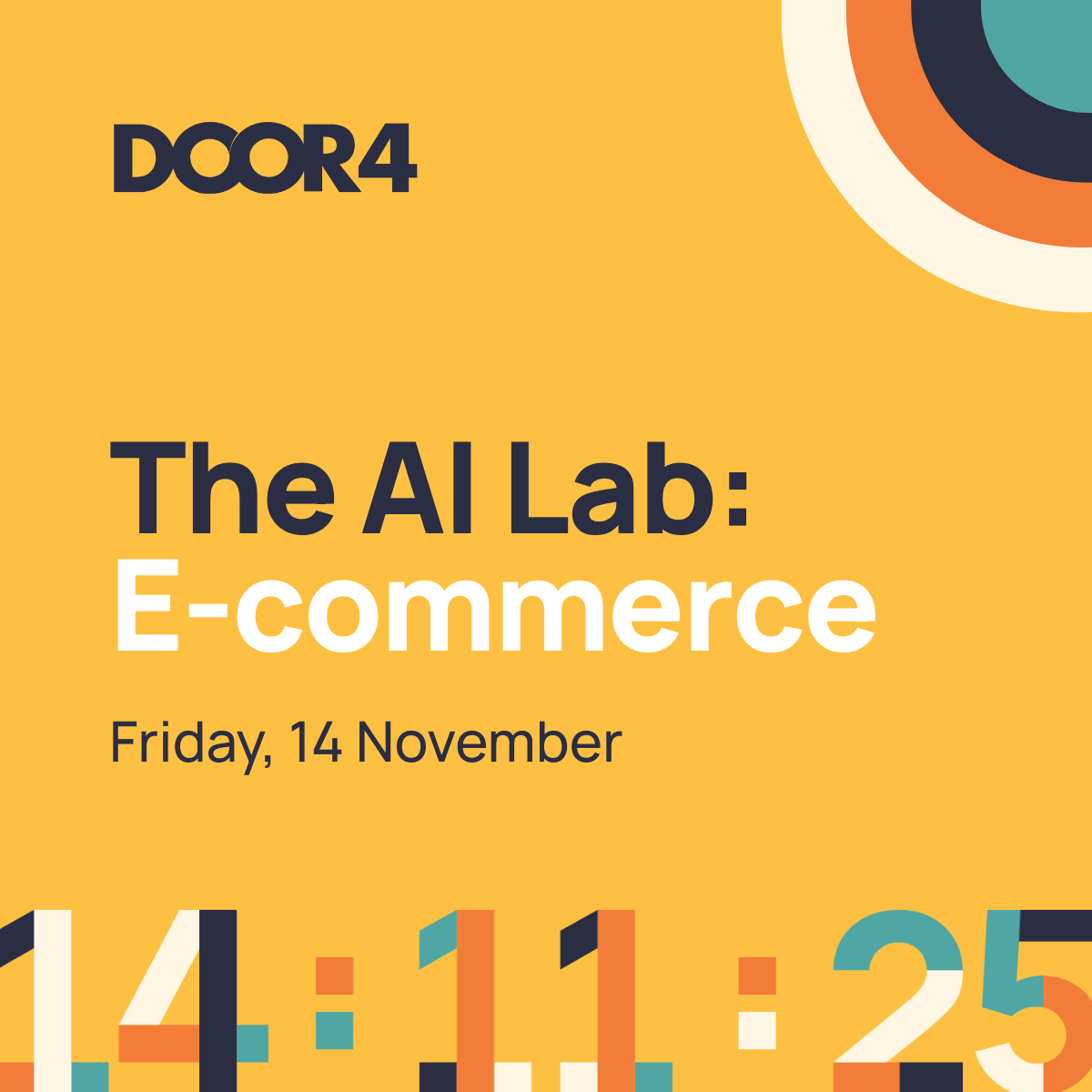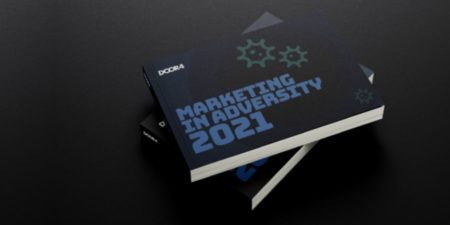Ready to explore the possibilities?
Request a quick call with our team to find out how the Innovation Explorer program can help your business take its next big leap into AI and automation.

Decoding Digital: Simon Iredale and ‘The subtle art of giving a f**k’
Simon Iredale, a brand builder of over 20 years’ experience, will be one of Door4’s featured speakers at the next Decoding Digital event, The customer (experience) is always right, on 9 September.
Here, he talks about what he’s up to, being brave in business, and what a people-centric philosophy means to him.
Hi Simon! For those not familiar with your work, could you tell us about what you do?
Yes, I’ve spent 20 plus years in digital, running a large agency in London before starting Motionlab 17 years ago. I exited the business last year and have been working with several exciting companies since then.
Sounds exciting, what’s on the horizon?
I’m working as head of brand and digital for Africa’s third largest internet provider and I’m collaborating with an app developer on something really important for the personal security sector.
Plus I’m still involved with my other business developing games for mobile devices and I’ve also got an interest in an agency in Scotland and an ecommerce company supplying specialist furniture.
And of course I’ll be continuing my consultation work with several brands, as well as speaking at various events like this one for Door4.
So you’re used to sharing your knowledge and experience with others in the digital sector then?
I’ve always enjoyed sharing my opinion on things, so it’s always nice to be asked to take part. I’ve talked at events for The Shout Network, the Women in Business Festival, colleges and universities, business organisations, and many more over the years.
But no matter what the setting or audience is, I never just talk from a solely digital angle. I’m passionate about how the mind works and how digital is the bridge between humans.
Digital should build bridges between humans
I started my own business for freedom above anything else – I love being outdoors, nature, camping, food and drink, meditation, mindfulness – and my work with digital has always been an aid, a thing to facilitate those human passions.
So for me, digital should build bridges between humans, not distill experiences and interactions down to something purely data based, with no accounting for emotion or individuality.
When I started work after university, there was no internet – we had a ‘blue sky’ room, marker pens and big sheets of paper and so on – so we had to try to understand humans, buying behaviours, and psychology better.
And I think a lot of businesses – especially those that rely on digital purely as a data source – have lost some of that freedom and room to be creative.
That’s why, when I speak publicly about these issues, hopefully it’s just as relevant to someone who owns a sandwich shop or a car dealership as it is to someone whose business is primarily digital.
Without giving too much away, can you give us a flavour of what you’ll be talking about at Decoding Digital next month?
Yes, I’ll be highlighting the importance of individuality, exuberance, flamboyance – all things it’s easy to lose sight of when building a business.
It’s tempting to think success depends on reading the right books or defining the right value proposition – but by doing the same as everyone else, you end up as a red apple in a huge barrel of red apples.
And even though digital can seem like a very structured sector, it’s important to remember we’re all people, with different emotions, who might react completely differently to a split test or on page content at a certain time of day.
So even in our marketplace, it’s important not to rely just on digital tools and systems?
I’m always impressed by those who see the benefits of frameworks and tools but aren’t afraid to go against the conventional wisdom and do the exact opposite to create something unique.
Some of the most exciting and fastest growing digital businesses in the UK are seeing success precisely because they did things differently to how they were supposed to.
I’m still a fan of the ‘sacred scripts’ like Simon Sinek’s ‘Why’ or business books like ‘Good to great’ by Jim Collins – and I completely advocate putting in methodologies for better business.
But allow yourself to be brave, to tread your own path and to be fearless when it comes to your own thoughts.
So you’re an advocate for innovation that puts humanity first – have you seen anything in digital recently that has impressed or excited you?
Well it won’t surprise you that I quite like people rebelling against digital – doing things like buying 12” vinyl records again.
I like to taste wine in a shop, where the owner can tell me about the family who made it – and maybe even offer a bit of cheese to go with it – rather than buying wine online.
But when digital is combined successfully with addressing these individual passions and desires, then it can be really impressive.
So the emergence of augmented reality has been great – it’s useful to be able to see how a pair of glasses will look or where a couch will fit in my room.
Is this people centred philosophy one you’ve always had in your career?
Yes, when we started Motionlab we had hardly any hierarchy, the structure was as flat as possible.
Clearly defining someone’s job role didn’t matter to me – if you remove the spark plug from an engine it won’t work – so it was more about focusing on the individual and how they worked best.
That’s what I like to see in businesses – digital or otherwise – people being given the freedom of expression, autonomy and space to experiment, basically allowing themselves to be human. Even if that means you’re hungover one day, then absolutely on fire the next – and everything else in between.
Book onto ‘The customer (experience) is always right’
Simon Iredale, plus Conrad Grimshaw and David Sollberger will be sharing insight into how optimal UX/CX leads to positive commercial outcomes – register now.
Photo supplied by Simon Iredale
-
 20.01.2021|Download our free Marketing in Adversity report 2021 - learnings from 2020 show how we might use digital marketing to build business resilience.
20.01.2021|Download our free Marketing in Adversity report 2021 - learnings from 2020 show how we might use digital marketing to build business resilience. -
 27.07.2021|UX research uses data and anecdotal evidence to improve page design for users. Boost your conversions, remove obstacles and streamline sales journeys.
27.07.2021|UX research uses data and anecdotal evidence to improve page design for users. Boost your conversions, remove obstacles and streamline sales journeys. -
 09.07.2020|How do you optimise website content and SEO strategy to Google’s E-A-T? Learn more about the three pillars, with practical tips and examples.
09.07.2020|How do you optimise website content and SEO strategy to Google’s E-A-T? Learn more about the three pillars, with practical tips and examples.
Door4 opinions and insight.
We have a lot to talk about.Our latest articles, features and ramblings.
We explore performance marketing, AI, communications and optimisation.











